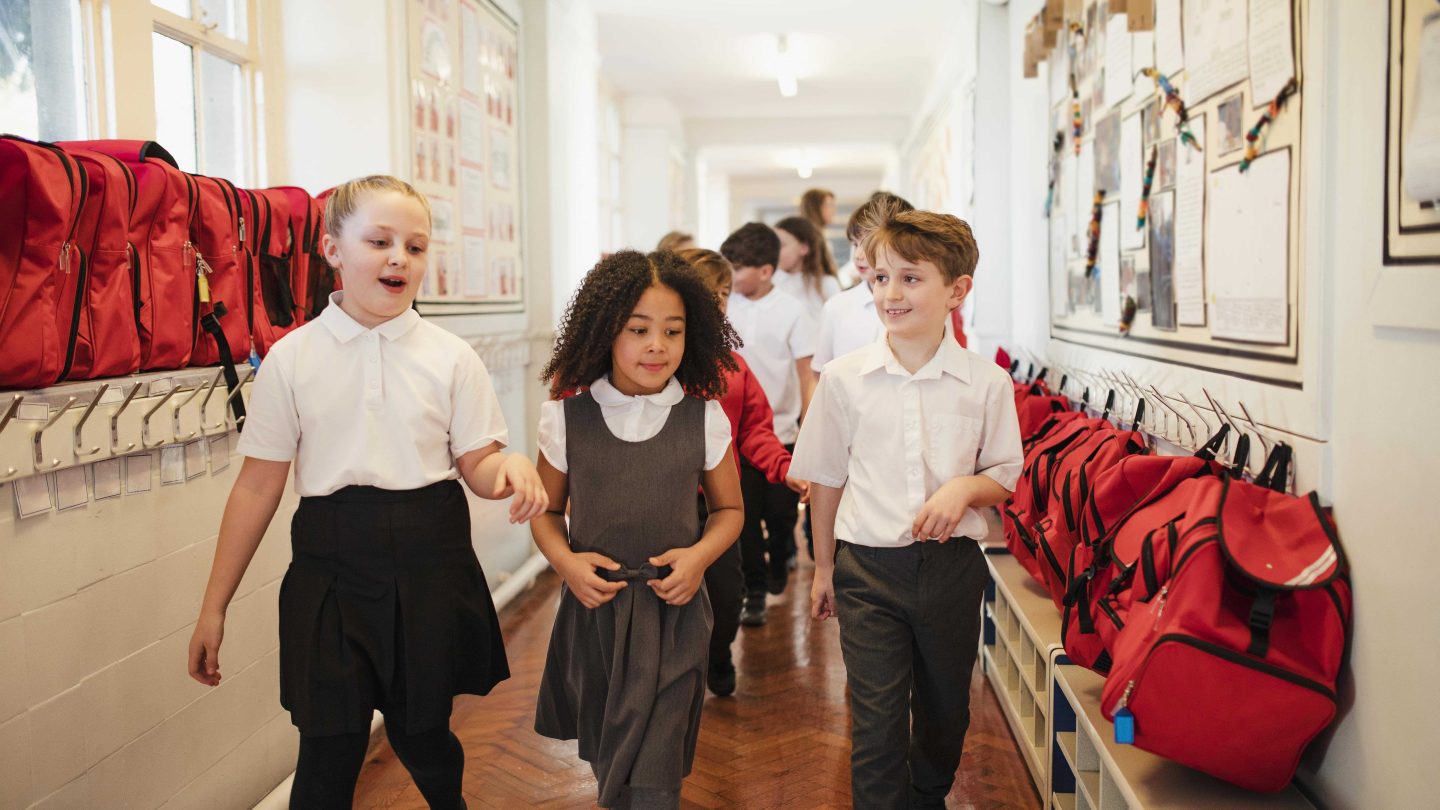Supporting your child’s social development in school
 Image: Three primary school-age pupils walking down a school corridor together.
Image: Three primary school-age pupils walking down a school corridor together.
School isn’t just a place for academic learning, it’s also where children develop vital social skills that will shape their confidence, friendships, and ability to work with others. From helping them make friends to guiding them through conflict resolution, your influence can make a lasting difference.
Encourage positive communication at home
Good social skills begin at home and children who feel heard and understood by their parents are more likely to develop empathy and effective communication skills.
Practise active listening
Give your child your full attention when they’re speaking. This shows that their thoughts and feelings matter.
Teach them to express emotions
Encourage them to name and talk about their feelings, whether it’s excitement, anger or nervousness. This builds emotional intelligence and self-awareness.
Model respectful conversation
Children often mirror adult behaviour. Show kindness, patience, and good manners in your own interactions.


